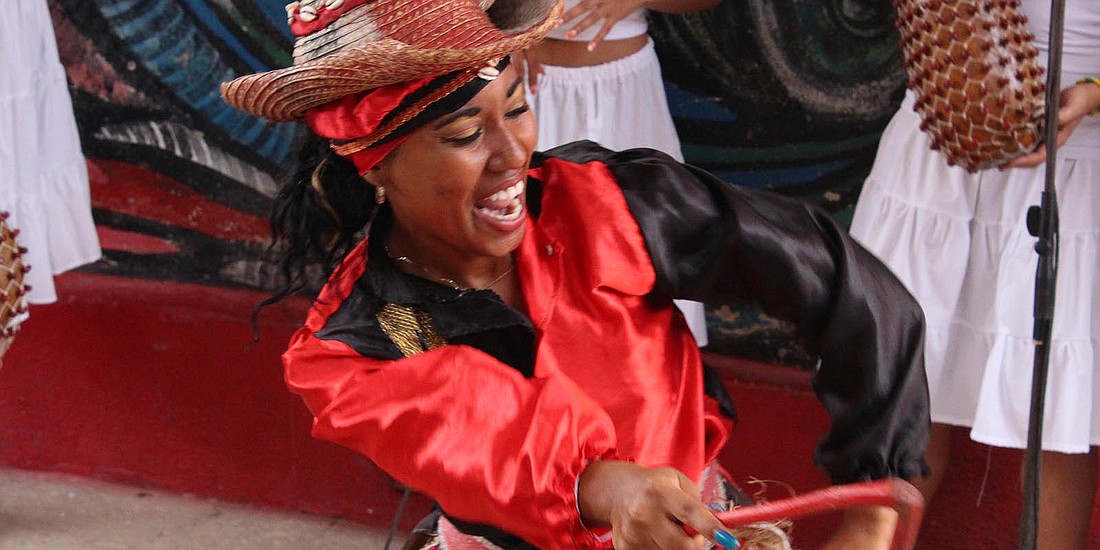- April 25, 2024
-
-
Loading

Loading

It’s no secret: Americans aren’t conditioned to see Cuba as a friendly neighbor.
So after she visited the Latin American country in 2017 for the first time, Brazilian-born filmmaker Mirella Martinelli decided to discover how other visitors to Cuba perceive the nation.
“I see people here have a preconceived idea of Cuba that is generally negative due to the mass media,” she says. “So I thought, ‘What about retelling the history of America’s relationship with Cuba through Americans?’”
Martinelli, a 2017 recipient of the John Ringling Tower Fund Grant in Performing Arts for this documentary film, has had a 34-year career in film. But she’s known locally for editing the short film “Pool” that screened at the Through Women’s Eyes Film Festival during the first weekend of the 2017 Sarasota Film Festival. “Pool” has earned 38 international awards at various film festivals, including Best Short Film at the Tampa Bay International Gay & Lesbian Film Festival.
She says her goal for the project is sharing an array of perspectives, along with giving U.S. residents a lesson in the history of Cuban-American relations that they’re unaware of after decades of political barriers.
Martinelli has filmed 15 interviews with Americans who have visited Cuba and Cuban-born individuals who reside in the U.S., and she has several more interviews scheduled. But she needs to raise $30,00 through Indiegogo and be awarded a few grants to complete the project.
After recently reconnecting with Elizabeth Coffman, a film producer who taught with Martinelli in 2000 at the University of Tampa, the pair began a crowdfunding campaign to pay for the remainder of the film. Coffman runs a nonprofit production company, Long Distance Productions, which Martinelli says she’s thankful to have aiding in the endeavor.
“It seems that the (Cuban-American) relationship is warming up,” Martinelli says of her motivation. “A lot of people don’t see the point in that estrangement anymore.”
Through the interviews she’s done so far, the filmmaker says she learned that what she thought would be a 30-minute short film needs to be a 60-minute, full-fledged feature film to do its mission justice — one reason why the crowdfunding campaign is important.
She’s also learned that it’s surprisingly not that hard to find people who qualify for an interview, aka people living in the U.S. who have been to Cuba. Florida is a state of so many transplants from other areas of the U.S., she says, so one of the most fascinating aspects is speaking with people who haven’t all lived as close to Cuba as have native Floridians.
“I’m focused on having a diverse group of people interviewed,” Martinelli says. “And I want to interview different members of different communities, like the LGBTQ community.”
The filmmaker says Cuba has a long-standing stereotype of being unfriendly to the LGBTQ community, but the country has since changed its treatment of queer-identifying individuals to form a more positive relationship. This is one of many stereotypes she hopes to debunk.
“We’ll touch on how the media in the U.S. has treated the history (of relations) and how the Cuban media has treated the same events,” Martinelli says in terms of her approach. “And we’ll, of course, include Cuban music.”
The most rewarding aspect of working on the film so far, she says, is the people she’s met and the voices she’s heard. Martinelli says it’s fascinating how people can view the same country with so many different impressions, and she’s happy to have found a wide variety of opinions.
As a Brazilian residing in the U.S., Martinelli says she also feels a deep connection to the subject she’s exploring because of her familiarity with Latin American culture.
But her connection to Latino culture doesn’t end there. Her husband is in Sarasota Latin funk and Motown dance band Big Night Out, the filmmaker says, and he wanted to visit Cuba to learn more about its music. So her trip to Cuba in March 2017 was originally for him.
“It was a research on music, and we ended up leaving there with my art form and wanting to express some of that ... unique culture,” she says.
Click here to learn more and/or donate to the project.